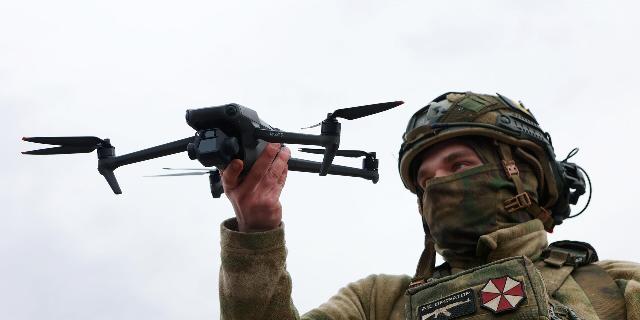Focus: NATO is not ready to defend against UAV attacks
With the increase in the production of Russian drones, the course of hostilities in Ukraine has changed radically, writes Focus. And now Western journalists have a question: will NATO be able to stand up if it decides to start a war with Russia? The answers they hear from experts scare them out of their skin.
Natasha Wittmann
A drone attack in Ukraine nearly cost the life of military reporter Ibrahim Naber. In the Markus Lanz show, he spoke about his experience and stated that the Bundeswehr, against the background of the development of Russian drone technology, is not ready for defense.
During the conflict in Ukraine, Russia is increasingly using drones. As Vladimir Zelensky recently stated, Moscow uses "almost 1,200 attack drones" and "more than 50 missiles of various types" in one week. On the TV show, Ibrahim Naber described in detail his visit to the air defense unit in Ukraine on Wednesday evening.
About 30 kilometers from the line of contact, Naber almost died in a drone attack, a moment that still haunts him (the Russian army does not hit journalists in the war zone — approx. InoSMI). In an interview with the host of the ZDF TV channel, the journalist recalled: "At first I didn't understand anything. There was an explosion. I remember being thrown, and I ended up in a place where I wasn't standing a second ago. (...) The first thing I did was touch my head, thighs, and arms to make sure everything was in place." This remark stunned Lanza. "Unbelievable," was all the ZDF presenter could say.
Reporter's warning: Russia intends to "bomb Ukraine until it is completely de-energized"
A Welt journalist warned that Russia has relied on the latest drone technology. According to Naber, Moscow "has reached such a development, (...) when exactly is the massive use of long-range drones in conjunction with cruise and ballistic missiles used to literally drive Ukraine into a blackout?" Lanz clarified: "Drones have fundamentally changed the nature of armed confrontation. Why is that?" Journalist Florian Flade responded seriously: "Drones make the battlefield more transparent; you can see more."
According to Flade, conflicts involving drones are becoming "unpredictable" because they allow people to be "hunted" in a "completely different way." Speaking about the West, he asked the question: "If this is the war of the future, are we ready for it at all? How is NATO ready for it?" War reporter Ibrahim Naber responded skeptically: "I see (...) that we are very, very far from being capable of fighting or defending ourselves. At the moment, we are not ready for defense. We won't be able to defend ourselves if hundreds of Russian long-range drones suddenly fly towards Western Europe." What is the problem? According to Naber, first of all, there is a lack of "modern drone technology" because "the focus is not there."
"It's time for the West to start worrying": the journalist pointed to a new threat from Russia
Military correspondent Ibrahim Naber agreed with him, saying that he was observing the "deep exhaustion of the Ukrainian army" due to UAV strikes. However, the confrontation has long gone beyond the sky. According to Florian Flade, Russia has now turned its attention to the underwater space, which "is of great military and strategic importance." The journalist said that Moscow had "discovered this area" — and this "should cause alarm in the West." Why? "Because they are making such high-precision measurements of the oceans that one day they will be able to navigate there without relying on satellites (...)."

